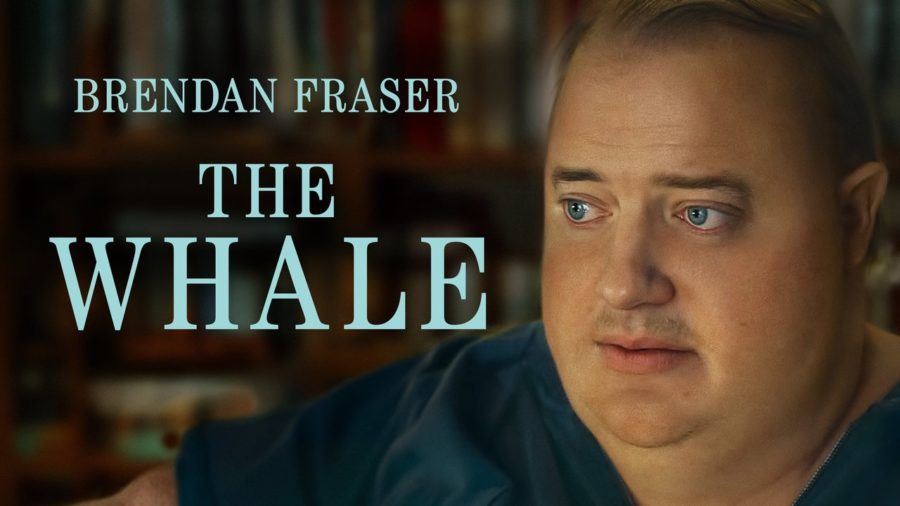‘The Whale’: Beyond the body
April 10, 2023
This movie review contains spoilers.
The curtains are closed. There is no light through the window. Just a man and his own war.
“The Whale,” a 2022 film directed by Darren Aronofsky, tells the story of Charlie (Brendan Fraser), an English and creative writing teacher who dares not open his screen in his online classes because of his appearance.
The plot shows the seriousness of Charlie’s state of health due to being clinically overweight, which led him to contract respiratory and heart diseases.
Death is the strongest voice in the film.
Because it is a psychological drama, it is possible to see how much Charlie’s house was a reflection of his mind and soul: a fearful space that was lost every day.
Having the closest death he imagined, Charlie starts to run after his daughter, Ellie (Sadie Sink), from his former marriage.
Ellie is 18 years old, but since she was seven, Charlie has not seen her because of the bitter and painful separation process between him and his ex-wife.
Ellie, though distraught, is a point of light in the midst of Charlie’s shy, fearful and quiet environment.
“The Whale” follows one of Aronofsky’s most recurrent themes: the martyrdom of the body and its relationship with the existential anxieties of a finite life.
The philosophy expressed by the director is masterfully applied, especially when we notice that, in this film, the idea that the greatest certainty in life is its own non-existence and that the greatest challenge is the process of traveling to the final destination.
A very interesting aspect of Charlie — and one that is well-portrayed by Brendan Fraser in the film — is his character’s simple and pure eyes shining in a body that he considers to be disturbing.
Even though all the scenes involve the story of an obese man about to die because of his physical condition, we forget for a moment his external side.
The development of his pain as a father with no contact with his daughter and as a lonely man with only a nurse in his home (Liz, played by Hong Chau) is what comes across the most on screen.
His eyes full of hurt, fear, vulnerability and guilt immerses the audience in a sea of sadness.
It is possible to look beyond the body.
For me, a large part of the film’s success is due to the ability of the actors — above all, Fraser’s protagonist — to fulfill what Aronofsky has as his main priority when selecting his cast: not being afraid to feel.
Anyone who watches “The Whale” can clearly see the sensibility of a soul in pieces.
Even with the curtains closed and the lack of light in the environment, we feel what we need to feel with this work of art.




























































































































































